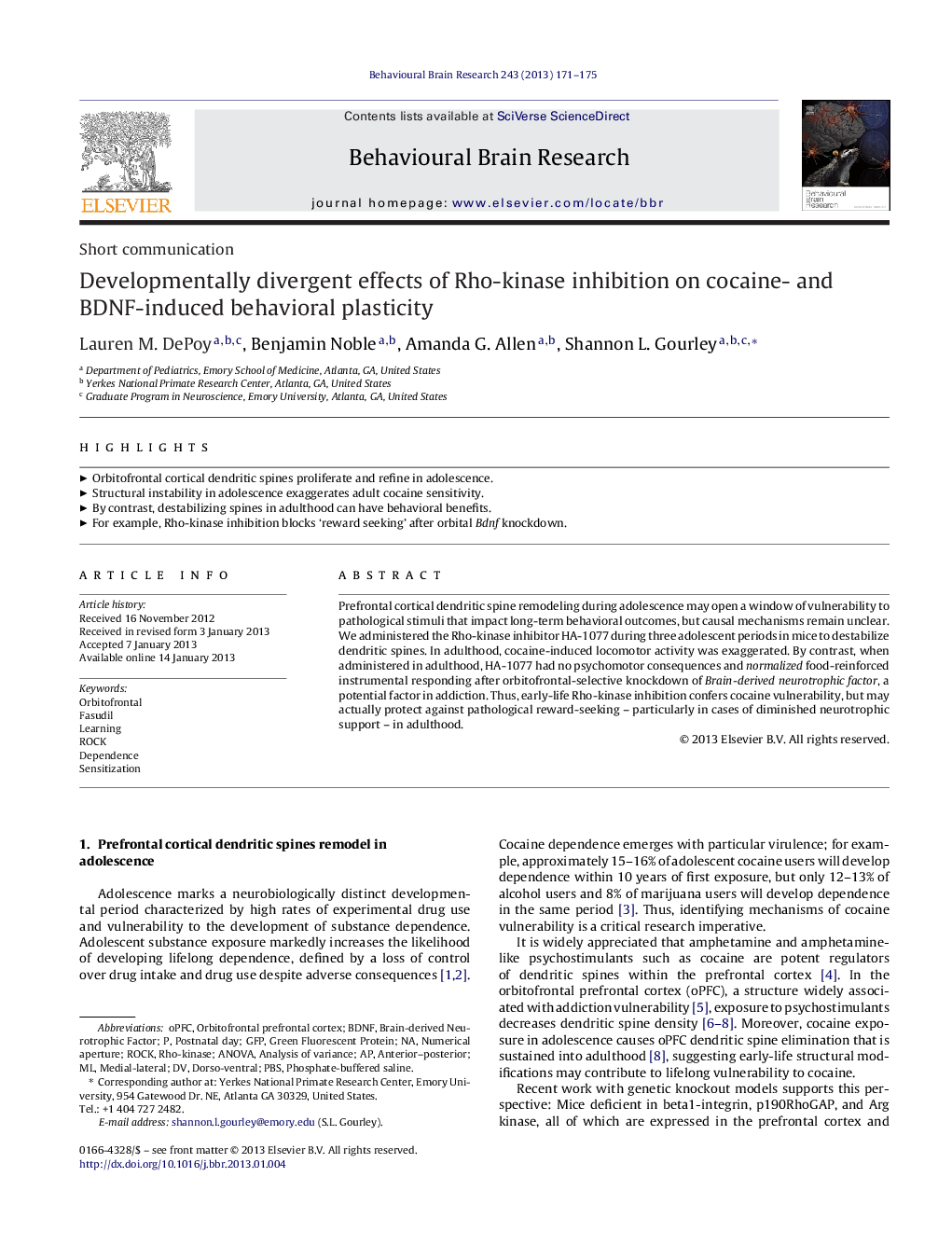| Article ID | Journal | Published Year | Pages | File Type |
|---|---|---|---|---|
| 4312790 | Behavioural Brain Research | 2013 | 5 Pages |
Prefrontal cortical dendritic spine remodeling during adolescence may open a window of vulnerability to pathological stimuli that impact long-term behavioral outcomes, but causal mechanisms remain unclear. We administered the Rho-kinase inhibitor HA-1077 during three adolescent periods in mice to destabilize dendritic spines. In adulthood, cocaine-induced locomotor activity was exaggerated. By contrast, when administered in adulthood, HA-1077 had no psychomotor consequences and normalized food-reinforced instrumental responding after orbitofrontal-selective knockdown of Brain-derived neurotrophic factor, a potential factor in addiction. Thus, early-life Rho-kinase inhibition confers cocaine vulnerability, but may actually protect against pathological reward-seeking – particularly in cases of diminished neurotrophic support – in adulthood.
► Orbitofrontal cortical dendritic spines proliferate and refine in adolescence. ► Structural instability in adolescence exaggerates adult cocaine sensitivity. ► By contrast, destabilizing spines in adulthood can have behavioral benefits. ► For example, Rho-kinase inhibition blocks ‘reward seeking’ after orbital Bdnf knockdown.
